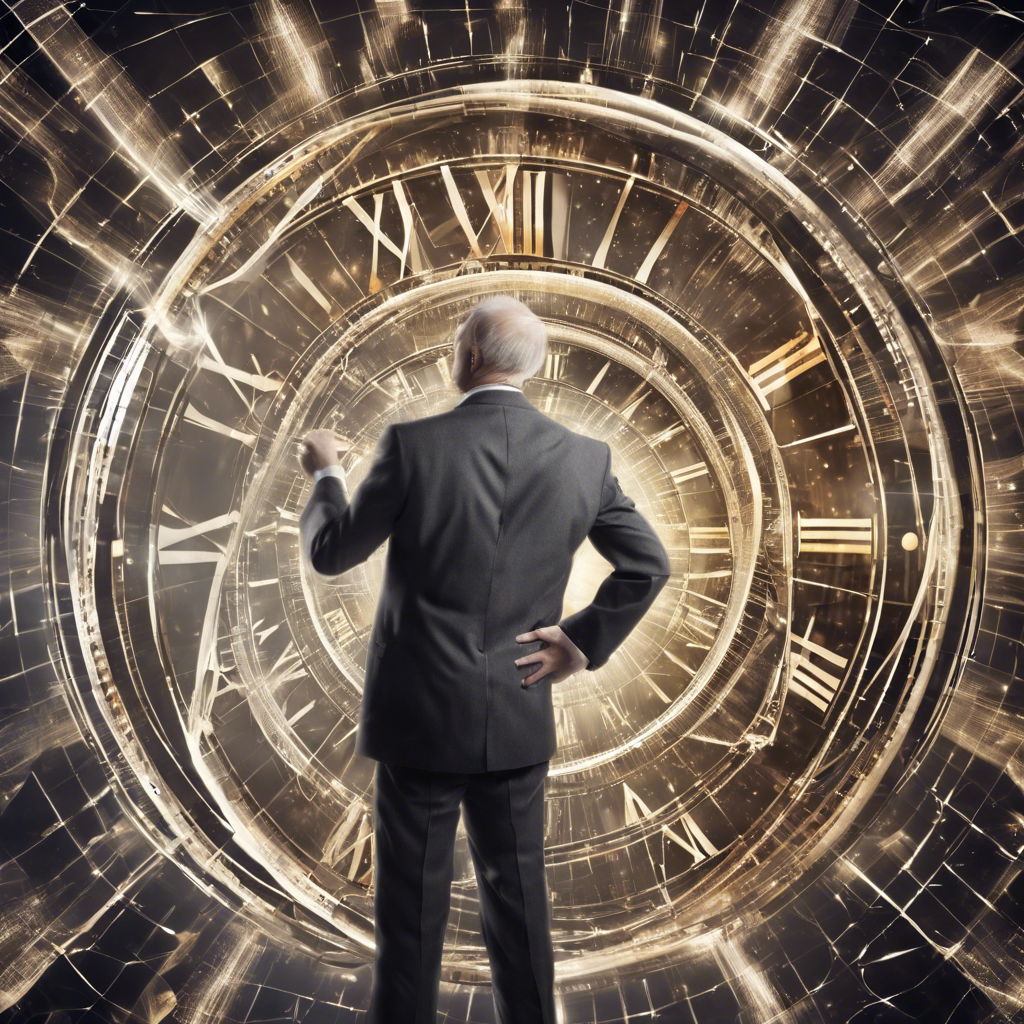Physics student Germain Tobar from the University of Queensland in Australia has found a way to make time travel theoretically viable without the infamous grandfather paradox.
The concept of time travel has captivated the human imagination for centuries. From movies like The Terminator to Back to the Future, the idea of traversing through time presents a myriad of mind-boggling questions. How would altering the past affect the present? Can we change the course of history? And most importantly, could time travel exist without causing paradoxes? While no one has successfully traveled through time, a groundbreaking study by physics student Germain Tobar offers a glimmer of hope that time travel might be possible after all.
Challenging the Grandfather Paradox
The grandfather paradox is a classic conundrum that arises when considering time travel. If one were to go back in time and prevent their grandparents from meeting, how could they exist to travel back in time in the first place? Tobar’s research tackles this paradox by proposing a solution that “squares the numbers” and makes time travel viable without paradoxes. By incorporating the principles of Einstein’s theory of general relativity, Tobar suggests that space-time can adapt itself to avoid paradoxes, allowing for consistent time travel.
The Influence of Deterministic Processes
Tobar’s work delves into the influence of deterministic processes on the space-time continuum. These processes, devoid of randomness, can impact an arbitrary number of regions in space-time. By exploring the compatibility of closed time-like curves, as predicted by Einstein, with the rules of free will and classical physics, Tobar’s calculations demonstrate that time travel can exist without paradoxes. This groundbreaking revelation bridges the gap between science fiction and scientific possibility.
The Restriction of Time Travel
While Tobar’s calculations suggest that time travel without paradoxes is theoretically possible, the actual implementation of bending space and time remains a challenge. Current time machines exist only as calculations on a page, and the practical realization of such technology is yet to be achieved. However, Tobar’s research also proposes a hypothesis that time travelers would be restricted in their actions to prevent paradoxes. This model allows for freedom of choice but ensures that actions taken in the past do not create inconsistencies.
The Adjustments of Time
According to Tobar’s research, time travel with free will is logically possible in our universe without any paradoxes. The study suggests that events would readjust themselves to avoid inconsistencies caused by time travel. For example, if a time traveler were to go back in time to prevent the spread of a disease, the disease would find another way to escape, ensuring that the timeline remains consistent. This finding opens up a world of possibilities, where time travelers could have a significant impact on the past without disrupting the fabric of reality.
The Future of Time Travel
While Tobar’s research provides a theoretical framework for time travel without paradoxes, the practical realization of this phenomenon remains uncertain. Renowned physicist Stephen Hawking believed that time travel could be possible, and Tobar’s work aligns with this notion. However, the development of time travel technology is a complex and challenging task that requires further exploration. As scientists continue to unravel the mysteries of the universe, the possibility of time travel with free will offers an intriguing avenue for future research.
Conclusion:
The concept of time travel has long been relegated to the realm of science fiction, but Germain Tobar’s groundbreaking research challenges this notion. By proposing a solution to the grandfather paradox and demonstrating that time travel can exist without paradoxes, Tobar’s work offers a tantalizing glimpse into the potential of traversing through time. While the practical implementation of time travel technology remains elusive, the research opens up new avenues for scientific exploration and inspires further investigation into the mysteries of the universe. As we continue to unravel the secrets of time, the possibility of time travel with free will beckons, inviting us to ponder the implications it may hold for our understanding of the past, present, and future.











